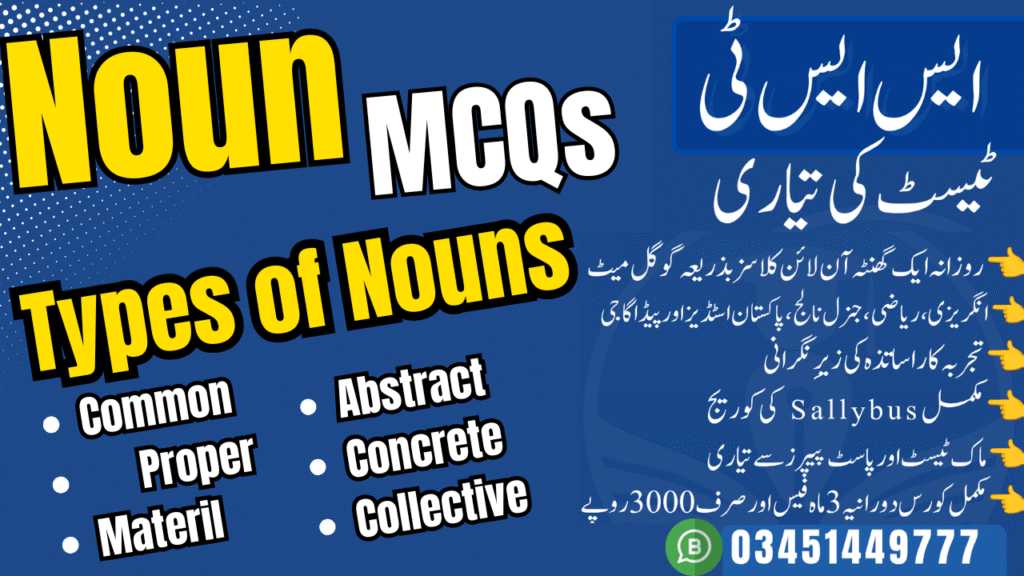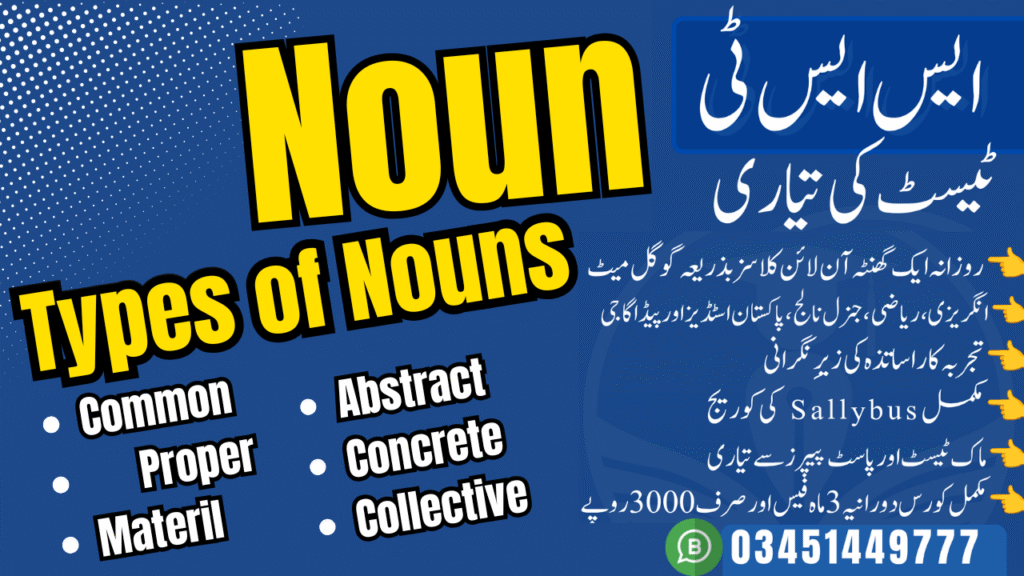Unit 1B: Dedicated to Humanity (Abdul Sattar Edhi)
Complete Original Text & Exercises
Listening
1. Abdul Sattar Edhi was a famous humanitarian and philanthropist. Can you think what these two underlined words mean? Share your thoughts with the whole class.
2. Abdul Sattar Edhi’s work made him famous around the world. He was loved and respected for his love for humanity and mankind. How do you think the following pictures relate to him?
Listen to this short documentary on Abdul Sattar Edhi and complete the activities.
Abdul Sattar Edhi
Most ambulances in Pakistan bear the name of the extraordinary man, Abdul Sattar Edhi. The foundation he started, was then one of the biggest welfare organizations anywhere in the world involved in an impressive array of charitable work.
The Edhi Foundation’s services extended far and wide, covering various aspects of humanitarian aid. The organization runs hospitals, clinics, dispensaries, and orphanages, providing medical care and shelter to countless individuals. Edhi’s ambulance service, known as the “Edhi Ambulance Corps,” operated 24/7 offering immediate medical assistance to people in need.
Edhi’s work not only focused on physical well-being but also on social welfare. His foundation established homes for abandoned children, shelters for women, rehabilitation centres for drug addicts, and burial services for unclaimed bodies. Edhi believed that every human being deserved dignity and care, regardless of their circumstances.
Let’s Talk
In pairs, discuss the following:
- Can you think of any other humanitarian who dedicated his/her life to serving mankind?
- What kind of personality do you think Abdul Sattar Edhi had?
- What challenges do you think Edhi might have faced when he started working for the people of Karachi? Talk to your partner about some of the difficulties and challenges a philanthropist face while serving humanity.
- With your partner, research different organisations or individuals who are working to serve humanity. Prepare a small talk or a presentation and share it with your class.
Reading: Text 1B
“People have become educated, but have not become human,” – Abdul Sattar Edhi.
Abdul Sattar Edhi, often referred to as the “Angel of Mercy,” was a remarkable humanitarian who dedicated his life to serving those in need. Born in 1928 in the city of Gujarat, India, his family migrated to Pakistan in 1947. Edhi’s early life experiences shaped his profound compassion and unwavering commitment to the welfare of others.
Growing up in a family of limited means, Edhi witnessed poverty and suffering from an early age. These experiences deeply impacted him, instilling in him a strong sense of empathy and a desire to alleviate the hardships faced by the less fortunate. His personal experiences became the driving force behind his tireless efforts to bring positive change to society.
His mother’s serious and persistent illness, and then her death created an everlasting impression on his thinking patterns and personality that drove him to make a pledge to comfort suffering humanity.
He had the vision of establishing welfare homes and shelters to minimize the grievances of the people who lived in misery and had no one who could provide them with the basic necessities of life. Through these shelter homes, Edhi vowed to take care of the people who were maltreated, neglected and had any sort of physical or mental disability. He began his mission by establishing a free dispensary for the needy in collaboration with some community. members. Edhi wanted to establish an organization that could serve multiple purposes and thus founded ‘Edhi Trust’.
His vision developed and nurtured further as he went on to build Edhi homes, maternity homes and initiated an ambulance service across Karachi. While his work earned him global recognition and admiration, Abdul Sattar Edhi remained grounded and focused on his mission. His personal life revolved entirely around the service of humanity, and he considered his work as a sacred duty bestowed upon him. Edhi and Bilquees Edhi worked day and night collaboratively to reduce the pain of suffering humanity. Edhi died on July 8, 2016, at the age of 88. His organs were donated as per his last will.
Abdul Sattar Edhi’s legacy continues to inspire countless individuals worldwide. His unwavering dedication, empathy, and selflessness serve as a guiding light for future generations, reminding us of the profound impact one person can make in the lives of others.
Comprehension Questions
- What will Abdul Sattar Edhi be remembered for?
- How can Edhi’s legacy be carried forward?
- Edhi’s life teaches us the importance of love for humanity. How do you think this love for humanity can be promoted in society? Discuss in detail.
- Write down the important information and events in the life of Abdul Sattar Edhi. (Date & place of birth, Family, Marriage, Life & works, Death)
Vocabulary Exercises
1. Match each vocabulary word with its correct definition and identify whether the given meaning is denotative (D) or connotative (C).
| Column A (Word) | Column B (Definition) | Meaning Type |
|---|---|---|
| humanitarian | Concerned with promoting human welfare and reducing suffering. | D |
| compassion | A deep feeling of empathy and understanding for the suffering of others | D |
| volunteer | A person who offers their services or time without expecting payment. | D |
| welfare | The health, happiness, and well-being of individuals or communities | D |
| destitute | Extremely poor and lacking basic necessities | D |
| dispensary | A place where medical treatment or advice is given to those in need. | D |
| orphanages | Institutions that provide care and support for children without parents | D |
| rehabilitation | The process of restoring someone to a normal life after illness, addiction, or injury. | D |
| dignity | The state of being worthy of honour and respect. | D |
Use of Language: Nouns
1. Identify and underline the nouns in the following sentences and state whether they are common, proper, concrete or abstract.
Abdul Sattar Edhi was born in 1928 in Gujarat (India). His mother’s illness fostered compassion in his soul for suffering humanity. At the age of eleven, Edhi left his education incomplete and dedicated his life to serving his mother who was paralyzed. His mother’s serious and persistent illness, and then her death created an everlasting impression on his thinking patterns and personality that drove him to make a pledge to comfort suffering humanity.
2. Sort the following nouns into categories by placing them in the table below.
wife, Karachi, birds, orphans, hospital, nation, whales, dream, donkey, shelter, patience, Faisal, wheelchair, life, son, home, love, joy, jewellery, hope, ambulance, Bilquees Edhi
| Common Noun | Proper Noun | Abstract Noun | Concrete Noun |
|---|---|---|---|
| wife, birds, orphans, hospital, nation, whales, donkey, shelter, son, home | Karachi, Faisal, Bilquees Edhi | dream, patience, life, love, joy, hope | wheelchair, jewellery, ambulance |
Sentence-by-Sentence Translation
Dedicated to Humanity (Abdul Sattar Edhi)
انسانیت کے لیے وقف (عبدالستار ایدھی)
Listening
سننا
1. Abdul Sattar Edhi was a famous humanitarian and philanthropist. Can you think what these two underlined words mean? Share your thoughts with the whole class.
۱۔ عبدالستار ایدھی ایک مشہور انسان دوست اور مخیر شخص تھے۔ کیا آپ سوچ سکتے ہیں کہ ان دو خط کشیدہ الفاظ کے کیا معنی ہیں؟ اپنے خیالات پوری کلاس کے ساتھ شیئر کریں۔
2. Abdul Sattar Edhi’s work made him famous around the world. He was loved and respected for his love for humanity and mankind. How do you think the following pictures relate to him?
۲۔ عبدالستار ایدھی کے کام نے انہیں دنیا بھر میں مشہور کر دیا۔ انسانیت اور بنی نوع انسان سے محبت کی وجہ سے ان سے محبت اور ان کا احترام کیا جاتا تھا۔ آپ کے خیال میں مندرجہ ذیل تصاویر ان سے کیسے متعلق ہیں؟
Listen to this short documentary on Abdul Sattar Edhi and complete the activities.
عبدالستار ایدھی پر یہ مختصر دستاویزی فلم سنیں اور سرگرمیاں مکمل کریں۔
Most ambulances in Pakistan bear the name of the extraordinary man, Abdul Sattar Edhi.
پاکستان کی زیادہ تر ایمبولینسوں پر غیر معمولی شخص عبدالستار ایدھی کا نام درج ہے۔
The foundation he started, was then one of the biggest welfare organizations anywhere in the world involved in an impressive array of charitable work.
ان کی شروع کردہ فاؤنڈیشن اس وقت دنیا میں کہیں بھی سب سے بڑی فلاحی تنظیموں میں سے ایک تھی جو قابلِ تعریف فلاحی کاموں میں مصروف تھی۔
The Edhi Foundation’s services extended far and wide, covering various aspects of humanitarian aid.
ایدھی فاؤنڈیشن کی خدمات دور دور تک پھیلی ہوئی تھیں، جو انسانی امداد کے مختلف پہلوؤں کا احاطہ کرتی تھیں۔
The organization runs hospitals, clinics, dispensaries, and orphanages, providing medical care and shelter to countless individuals.
یہ تنظیم ہسپتال، کلینک، ڈسپنسریاں اور یتیم خانے چلاتی ہے، جو ان گنت افراد کو طبی دیکھ بھال اور پناہ فراہم کرتی ہے۔
Edhi’s ambulance service, known as the “Edhi Ambulance Corps,” operated 24/7 offering immediate medical assistance to people in need.
ایدھی کی ایمبولینس سروس، جسے “ایدھی ایمبولینس کور” کے نام سے جانا جاتا ہے، 24/7 کام کرتی ہے اور ضرورت مند لوگوں کو فوری طبی امداد فراہم کرتی ہے۔
Edhi’s work not only focused on physical well-being but also on social welfare.
ایدھی کا کام نہ صرف جسمانی بہبود پر مرکوز تھا بلکہ سماجی بہبود پر بھی تھا۔
His foundation established homes for abandoned children, shelters for women, rehabilitation centres for drug addicts, and burial services for unclaimed bodies.
ان کی فاؤنڈیشن نے لاوارث بچوں کے لیے گھر، خواتین کے لیے پناہ گاہیں، منشیات کے عادی افراد کے لیے بحالی کے مراکز، اور لاوارث لاشوں کے لیے تدفین کی خدمات قائم کیں۔
Edhi believed that every human being deserved dignity and care, regardless of their circumstances.
ایدھی کا ماننا تھا کہ ہر انسان اپنے حالات سے قطع نظر عزت اور دیکھ بھال کا مستحق ہے۔
Let’s Talk
آؤ بات کریں
In pairs, discuss the following:
جوڑوں میں، مندرجہ ذیل پر تبادلہ خیال کریں:
Can you think of any other humanitarian who dedicated his/her life to serving mankind?
کیا آپ کسی اور انسان دوست کے بارے میں سوچ سکتے ہیں جس نے اپنی زندگی بنی نوع انسان کی خدمت کے لیے وقف کر دی ہو؟
What kind of personality do you think Abdul Sattar Edhi had?
آپ کے خیال میں عبدالستار ایدھی کیسی شخصیت کے مالک تھے؟
What challenges do you think Edhi might have faced when he started working for the people of Karachi?
آپ کے خیال میں ایدھی کو کراچی کے لوگوں کے لیے کام شروع کرتے وقت کن چیلنجوں کا سامنا کرنا پڑا ہوگا؟
Talk to your partner about some of the difficulties and challenges a philanthropist face while serving humanity.
اپنے ساتھی سے ان مشکلات اور چیلنجوں کے بارے میں بات کریں جن کا سامنا ایک مخیر شخص کو انسانیت کی خدمت کرتے ہوئے کرنا پڑتا ہے۔
With your partner, research different organisations or individuals who are working to serve humanity. Prepare a small talk or a presentation and share it with your class.
اپنے ساتھی کے ساتھ، انسانیت کی خدمت کے لیے کام کرنے والی مختلف تنظیموں یا افراد پر تحقیق کریں۔ ایک چھوٹی سی تقریر یا پریزنٹیشن تیار کریں اور اسے اپنی کلاس کے ساتھ شیئر کریں۔
Reading: Text 1B
“People have become educated, but have not become human,” – Abdul Sattar Edhi.
“لوگ تعلیم یافتہ تو ہوگئے ہیں، لیکن انسان نہیں بنے۔” – عبدالستار ایدھی
Abdul Sattar Edhi, often referred to as the “Angel of Mercy,” was a remarkable humanitarian who dedicated his life to serving those in need.
عبدالستار ایدھی، جنہیں اکثر “رحمت کا فرشتہ” کہا جاتا ہے، ایک غیر معمولی انسان دوست تھے جنہوں نے اپنی زندگی ضرورت مندوں کی خدمت کے لیے وقف کر دی۔
Born in 1928 in the city of Gujarat, India, his family migrated to Pakistan in 1947.
1928 میں ہندوستان کے شہر گجرات میں پیدا ہوئے، ان کا خاندان 1947 میں پاکستان ہجرت کر گیا۔
Edhi’s early life experiences shaped his profound compassion and unwavering commitment to the welfare of others.
ایدھی کے ابتدائی زندگی کے تجربات نے دوسروں کی فلاح و بہبود کے لیے ان کی گہری ہمدردی اور غیر متزلزل عزم کو تشکیل دیا۔
Growing up in a family of limited means, Edhi witnessed poverty and suffering from an early age.
ایک محدود وسائل والے خاندان میں پرورش پاتے ہوئے، ایدھی نے کم عمری سے ہی غربت اور تکالیف کا مشاہدہ کیا۔
These experiences deeply impacted him, instilling in him a strong sense of empathy and a desire to alleviate the hardships faced by the less fortunate.
ان تجربات نے ان پر گہرا اثر ڈالا، جس سے ان میں ہمدردی کا مضبوط احساس اور بدقسمت لوگوں کی مشکلات کو کم کرنے کی خواہش پیدا ہوئی۔
His personal experiences became the driving force behind his tireless efforts to bring positive change to society.
ان کے ذاتی تجربات معاشرے میں مثبت تبدیلی لانے کے لیے ان کی انتھک کوششوں کے پیچھے محرک بن گئے۔
His mother’s serious and persistent illness, and then her death created an everlasting impression on his thinking patterns and personality that drove him to make a pledge to comfort suffering humanity.
ان کی والدہ کی سنگین اور مستقل بیماری، اور پھر ان کی موت نے ان کے سوچنے کے انداز اور شخصیت پر ایک لازوال تاثر چھوڑا جس نے انہیں دکھی انسانیت کو سکون پہنچانے کا عہد کرنے پر مجبور کیا۔
He had the vision of establishing welfare homes and shelters to minimize the grievances of the people who lived in misery and had no one who could provide them with the basic necessities of life.
ان کے پاس فلاحی گھر اور پناہ گاہیں قائم کرنے کا وژن تھا تاکہ ان لوگوں کی شکایات کو کم کیا جا سکے جو مصیبت میں رہتے تھے اور جن کے پاس کوئی ایسا نہیں تھا جو انہیں زندگی کی بنیادی ضروریات فراہم کر سکے۔
Through these shelter homes, Edhi vowed to take care of the people who were maltreated, neglected and had any sort of physical or mental disability.
ان پناہ گاہوں کے ذریعے، ایدھی نے ان لوگوں کی دیکھ بھال کرنے کا عزم کیا جن کے ساتھ برا سلوک کیا جاتا تھا، نظر انداز کیا جاتا تھا اور جنہیں کسی بھی قسم کی جسمانی یا ذہنی معذوری تھی۔
He began his mission by establishing a free dispensary for the needy in collaboration with some community members.
انہوں نے کچھ کمیونٹی ممبران کے تعاون سے ضرورت مندوں کے لیے ایک مفت ڈسپنسری قائم کرکے اپنے مشن کا آغاز کیا۔
Edhi wanted to establish an organization that could serve multiple purposes and thus founded ‘Edhi Trust’.
ایدھی ایک ایسی تنظیم قائم کرنا چاہتے تھے جو متعدد مقاصد کو پورا کر سکے اور اس طرح انہوں نے ‘ایدھی ٹرسٹ’ کی بنیاد رکھی۔
His vision developed and nurtured further as he went on to build Edhi homes, maternity homes and initiated an ambulance service across Karachi.
ان کا وژن مزید پروان چڑھا اور پروان چڑھا جب انہوں نے ایدھی ہومز، زچگی کے گھر بنائے اور پورے کراچی میں ایمبولینس سروس شروع کی۔
While his work earned him global recognition and admiration, Abdul Sattar Edhi remained grounded and focused on his mission.
جبکہ ان کے کام نے انہیں عالمی سطح پر شناخت اور تعریف دلائی، عبدالستار ایدھی اپنے مشن پر قائم اور مرکوز رہے۔
His personal life revolved entirely around the service of humanity, and he considered his work as a sacred duty bestowed upon him.
ان کی ذاتی زندگی مکمل طور پر انسانیت کی خدمت کے گرد گھومتی تھی، اور وہ اپنے کام کو ایک مقدس فریضہ سمجھتے تھے جو انہیں سونپا گیا تھا۔
Edhi and Bilquees Edhi worked day and night collaboratively to reduce the pain of suffering humanity.
ایدھی اور بلقیس ایدھی نے دکھی انسانیت کے درد کو کم کرنے کے لیے دن رات مل کر کام کیا۔
Edhi died on July 8, 2016, at the age of 88.
ایدھی 8 جولائی 2016 کو 88 سال کی عمر میں انتقال کر گئے۔
His organs were donated as per his last will.
ان کی آخری وصیت کے مطابق ان کے اعضاء عطیہ کر دیے گئے۔
Abdul Sattar Edhi’s legacy continues to inspire countless individuals worldwide.
عبدالستار ایدھی کا ورثہ دنیا بھر میں ان گنت افراد کو متاثر کرتا رہتا ہے۔
His unwavering dedication, empathy, and selflessness serve as a guiding light for future generations, reminding us of the profound impact one person can make in the lives of others.
ان کی غیر متزلزل لگن، ہمدردی، اور بے لوثی آنے والی نسلوں کے لیے ایک رہنما روشنی کا کام کرتی ہے، جو ہمیں اس گہرے اثر کی یاد دلاتی ہے جو ایک شخص دوسروں کی زندگیوں پر ڈال سکتا ہے۔
Comprehensive Vocabulary Builder
| Word | Part of Speech | Urdu Meaning | Synonym | Antonym |
|---|---|---|---|---|
| Humanitarian | (n.) | انسان دوست | Benefactor | Egoist |
| Philanthropist | (n.) | مخیر شخص | Patron | Misanthrope |
| Extraordinary | (adj.) | غیر معمولی | Remarkable | Ordinary |
| Welfare | (n.) | فلاح و بہبود | Well-being | Hardship |
| Impressive | (adj.) | متاثر کن | Awe-inspiring | Unimpressive |
| Charitable | (adj.) | خیراتی | Generous | Stingy |
| Orphanages | (n.) | یتیم خانے | Foundling homes | Family homes |
| Countless | (adj.) | ان گنت | Innumerable | Few |
| Immediate | (adj.) | فوری | Instant | Delayed |
| Rehabilitation | (n.) | بحالی | Recovery | Deterioration |
| Dignity | (n.) | وقار | Prestige | Dishonor |
| Circumstances | (n.) | حالات | Conditions | Intentions |
| Dedicated | (v.) | وقف کر دیا | Devoted | Neglected |
| Profound | (adj.) | گہرا | Deep | Superficial |
| Compassion | (n.) | ہمدردی | Empathy | Cruelty |
| Unwavering | (adj.) | غیر متزلزل | Steadfast | Hesitant |
| Commitment | (n.) | عزم | Pledge | Apathy |
| Alleviate | (v.) | کم کرنا | Relieve | Worsen |
| Persistent | (adj.) | مستقل | Relentless | Intermittent |
| Grievances | (n.) | شکایات | Complaints | Praises |
| Maltreated | (v.) | بدسلوکی کی گئی | Abused | Nurtured |
| Recognition | (n.) | شناخت | Acknowledgement | Anonymity |
| Admiration | (n.) | تعریف | Appreciation | Contempt |
| Grounded | (adj.) | حقیقت پسند | Sensible | Arrogant |
| Sacred | (adj.) | مقدس | Holy | Profane |
| Collaboratively | (adv.) | مشترکہ طور پر | Jointly | Individually |
| Legacy | (n.) | میراث | Inheritance | Novelty |
| Selflessness | (n.) | بے لوثی | Altruism | Selfishness |
Interactive Quiz
Solutions to Exercises & Comprehension Questions
Listening Questions
1. Meanings of ‘humanitarian’ and ‘philanthropist’:
- Humanitarian: A person who actively works to improve people’s lives and reduce suffering.
- Philanthropist: A wealthy person who donates money and time to help make life better for other people.
Comprehension Questions Answers
a. What will Abdul Sattar Edhi be remembered for?
He will be remembered as a remarkable humanitarian, the “Angel of Mercy,” who dedicated his life to serving the needy. He will be remembered for founding the Edhi Foundation, which provides ambulance services, orphanages, shelters, and care for the destitute, and for his profound compassion, empathy, and selflessness.
b. How can Edhi’s legacy be carried forward?
His legacy can be carried forward by individuals and communities adopting his values of compassion, empathy, and selflessness. This can be done by volunteering, donating to charities, helping those in need in our own communities, and promoting the idea that every human being deserves dignity and care.
c. How can love for humanity be promoted in society?
Love for humanity can be promoted through education that emphasizes empathy and social responsibility. Encouraging volunteer work from a young age, sharing stories of humanitarians like Edhi, creating community support programs, and fostering a culture of kindness and respect for everyone, regardless of their background, can all help promote love for humanity.
d. Important information and events in the life of Abdul Sattar Edhi:
- Date & place of birth: 1928 in Gujarat, India.
- Family: Migrated to Pakistan in 1947. His mother’s illness and death were a major influence on him. He married Bilquees Edhi.
- Marriage: He married Bilquees, who worked collaboratively with him in his mission.
- Life & works: Founded the Edhi Trust. Established a free dispensary, welfare homes, shelters, maternity homes, and a nationwide ambulance service. He earned global recognition but remained grounded.
- Death: July 8, 2016, at the age of 88. His organs were donated.
Vocabulary Exercise Solution
Matching Words with Definitions:
- humanitarian: Concerned with promoting human welfare and reducing suffering. (D)
- compassion: A deep feeling of empathy and understanding for the suffering of others. (D)
- volunteer: A person who offers their services or time without expecting payment. (D)
- welfare: The health, happiness, and well-being of individuals or communities. (D)
- destitute: Extremely poor and lacking basic necessities. (D)
- dispensary: A place where medical treatment or advice is given to those in need. (D)
- orphanages: Institutions that provide care and support for children without parents. (D)
- rehabilitation: The process of restoring someone to a normal life after illness, addiction, or injury. (D)
- dignity: The state of being worthy of honour and respect. (D)
Use of Language: Nouns Solutions
1. Identified Nouns and Their Types:
- Abdul Sattar Edhi, Gujarat, India, Edhi: Proper Noun
- mother, soul, age, life, patterns: Common Noun, Concrete Noun
- illness, compassion, humanity, education, death, impression, personality, pledge: Common Noun, Abstract Noun







